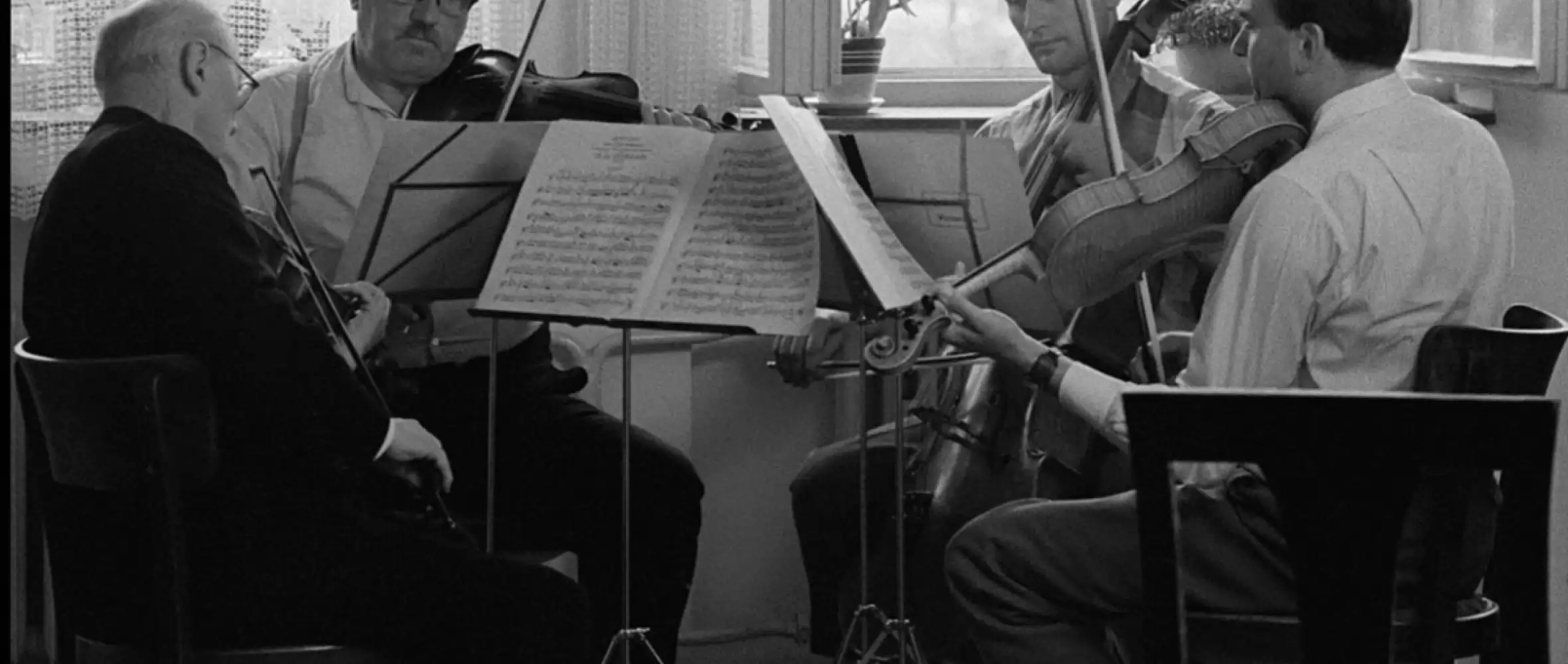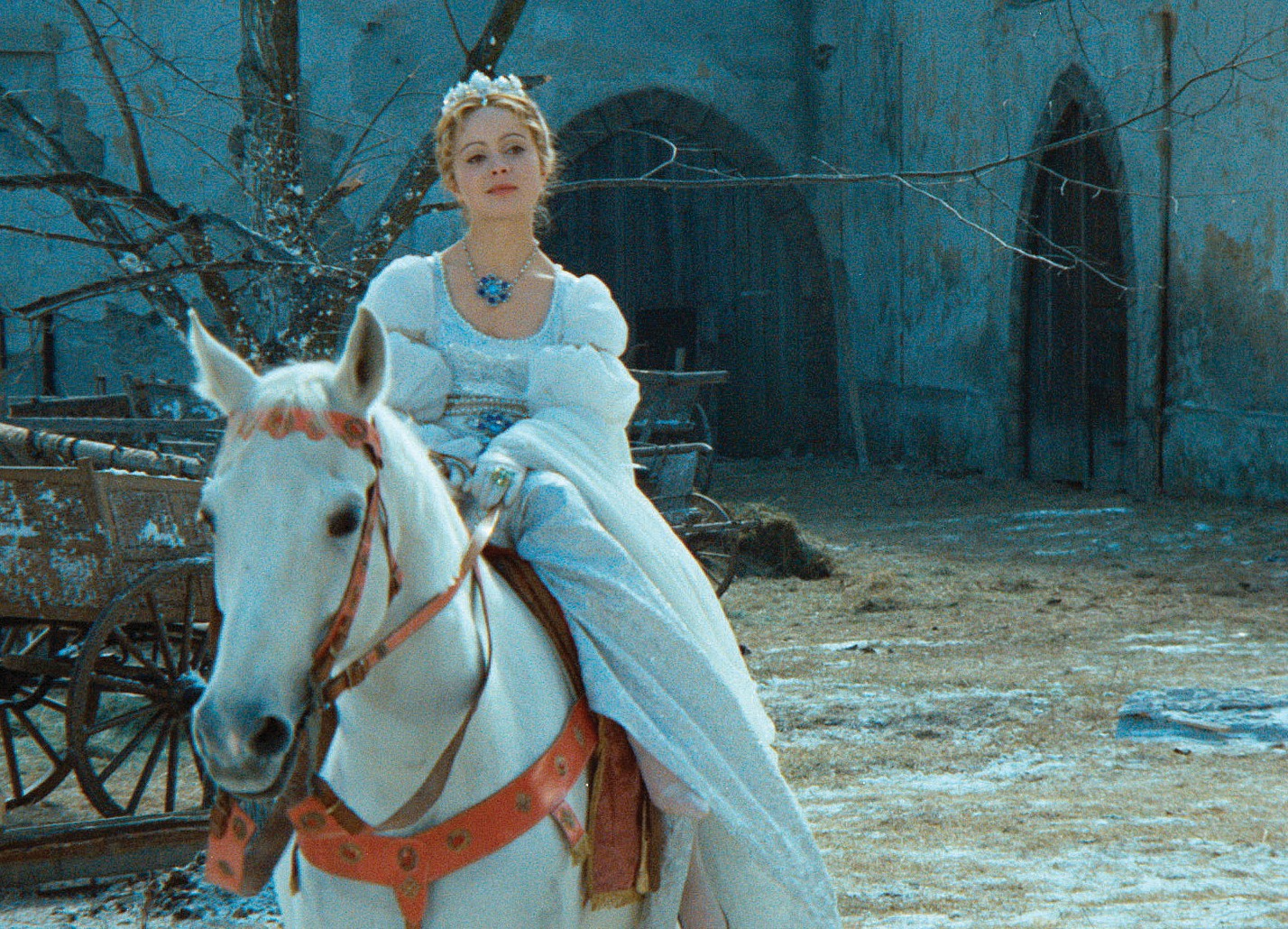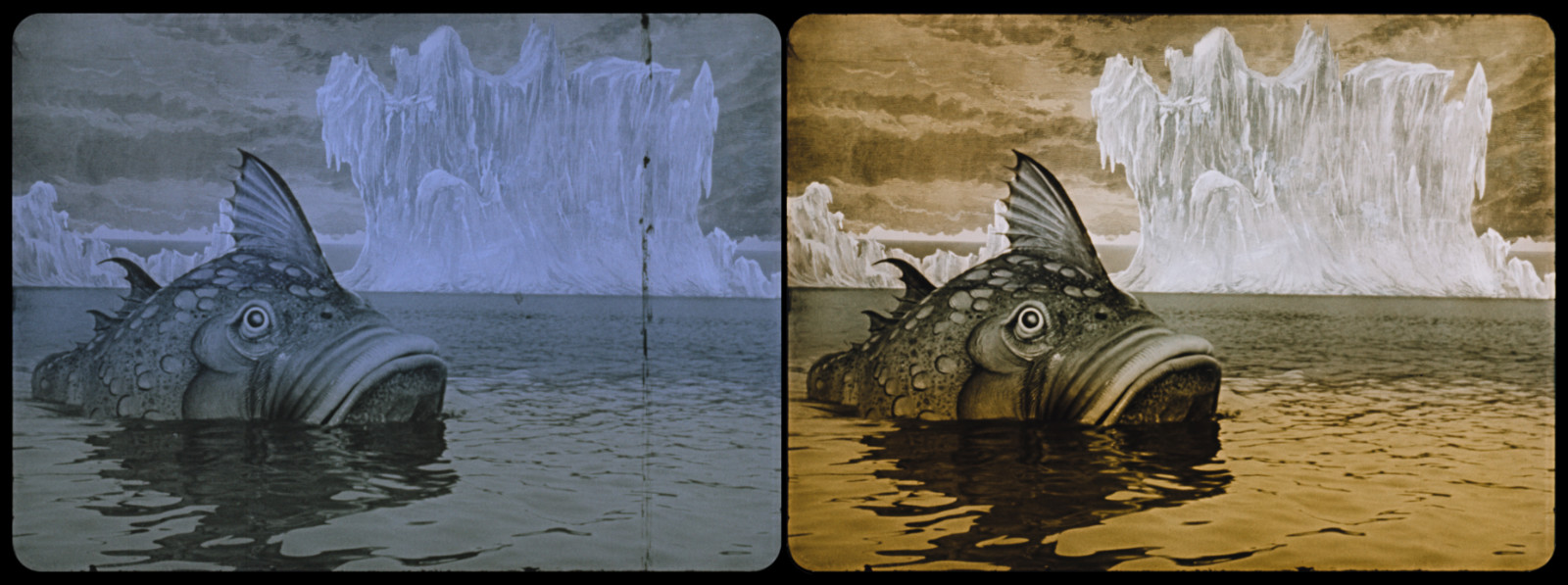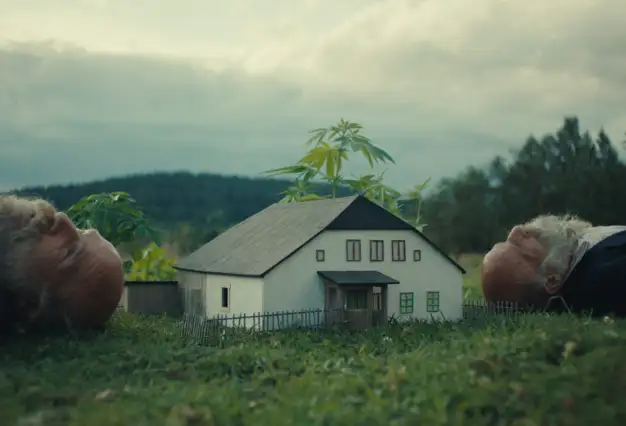
28 July 2016
Digital Restoration of Ivan Passer's Debut Feature at KVIFF
A new life for classics thanks to restoration efforts
Digital Restoration of Ivan Passer's Debut Feature at KVIFF
A new life for classics thanks to restoration efforts

Intimate Lighting, the gentle, well-observed comedy that launched Ivan Passer’s career as a director, is just one of several legendary works from the history of Czech cinema to have graced the screens of international film festivals in recent years in a brand-new digital restoration. Yet the warm reception given to Passer’s gem of black-and-white cinema stands out as an exception.
Article by Irena Kovářová for Czech Film Magazine / Fall 2016
Presenting the premiere in person this year in Karlovy Vary, the director was greeted to rapturous applause from the 1200 cinephiles packed into the Grand Hall at the Thermal. “It’s surprising to me the film still speaks to people. When we first showed it to the powers that be, they called it the most boring film ever made,” Passer chuckled. “The film came to life by a happy accident — like everything good in my life.”
While working in 1964 as cowriter and assistant director on Miloš Forman’s sophomore feature, Loves of a Blonde, Passer was approached by Václav Šašek, a screenwriter friend and dramaturge from one of Barrandov’s production groups. Šašek needed a director for the studio to green-light one of his projects and was counting on Passer’s relative fame. “We were all very young and I wanted to help him,” said Passer. “So when he asked if I would let him put my name on as director, I did, never thinking the film would be made.”
The rest is history. Intimate Lighting premiered to great acclaim in competition at the San Sebastian Film Festival, in an era when films from Czechoslovakia were de rigueur at every festival. And Passer, Forman’s close friend and screenwriting and directing partner, was a key figure in the generation that created his country’s New Wave cinema “miracle.”
Passer helmed only one feature film in his homeland and didn’t expect he’d be able to continue directing in the United States. Again, he was proven wrong. His very first US production — Born to Win, featuring Robert De Niro — was a success. Genuine fame, however, had to wait until Cutter’s Way, widely considered one of the best films on the aftermath of the Vietnam War.
When he went to the States, in 1969, Passer didn’t think his American sojourn would last more than a few years, but he ended up making his home in Los Angeles for the rest of his lengthy filmmaking and teaching career. “It took 30 years before I saw Intimate Lighting on the big screen again — in Geneva — from a 35mm print that was so dark you could hardly see some of the details,” Passer said, explaining why he was so glad to see the restoration of his debut.
Intimate Lighting is the latest in a series of digital restorations premiering at the A-list international festival in Karlovy Vary and financed by the Czech Film Foundation. The project has sparked the general public’s interest in the preservation of cinematic jewels and highlighted the need to put serious funds into the effort.
.jpg)
“The restoration team couldn’t have done a better job,” Passer said of Ivo Marák and the famed Prague post house UPP. Together with Soundsquare and the State Cinematography Fund, UPP is a key partner in the project, which has also produced restorations of Forman’s The Firemen’s Ball and Jiří Menzel’s Closely Watched Trains.
Another major digital restoration program comes from the National Film Archive, in Prague. The Cannes premiere of the restored 1960s science-fiction classic Ikarie XB 1 in May of this year was a landmark achievement, the first time a Czech title was featured in Cannes Classics. Ikarie XB 1, a rare example of sci-fi in Czechoslovak cinema, is beautifully rendered in a black-and-white wide-screen format, with a striking artistic approach and a compelling human drama that steers away from the political undertones pervading other films of the era. Ikarie XB 1 was acquired for US distribution at the time of its original release, and is rumored to have inspired the creators of the Star Trek TV series as well as Kubrick’s 2001: A Space Odyssey.
Ikarie XB 1 is one of 14 digital restorations produced by the National Film Archive with financing from the EEA and Norway Grants. “The films in the project — we stretched the funds from the original plan of 10 — cover every different time period, genre, and artistic style,” said NFA director Michal Bregant. “They include Such Is Life, a modernist Czech-German coproduction; The Czech Year by master animator Jiří Trnka; and Pavel Juráček’s Czechoslovak New Wave classic Joseph Kilian.” The series also offers lighter fare, such as Three Nuts for Cinderella. This 1970s adaptation of the classic fairy tale was one of the top Czechoslovak exports of the era, popular on both sides of the Iron Curtain, thanks to a West German coproduction.

The National Film Archive’s restorations are based on meticulous research, with the final product often complemented by a special publication. The NFA’s long history of restoration (celluloid as well as digital) and skilled archival work makes the institution a frequent partner in foreign film restoration projects. “We have to work economically, so apart from restorations, we’ve also digitized over 300 Czech films in high resolution and made them available for screenings from DCP,” Bregant notes.
Another restoration project, devoted to the work of animation master Karel Zeman, has the Karel Zeman Museum partnering with the Czech Film Foundation and Czech Television to digitally restore three feature films. The effort kicked off in 2015 with the premiere of Invention for Destruction in three sites simultaneously: the Karlovy Vary IFF; the National Museum of Cinema, in Turin; and the Museum of the Moving Image, in New York. Later the film was also presented at the Locarno Film Festival.
“Next up will be The Fabulous Baron Munchhausen, with Terry Gilliam lending a hand as a patron of the world premiere,” said Ondřej Beránek. He runs the production outfit Punk Film and is one of the founders of the Karel Zeman Museum. “The restoration supervisor is James Mockoski, an expert who works a lot with Francis Coppola. We found him thanks to our partners at UPP,” said Beránek.

Zeman’s daughter Ludmila, who worked with her father on his last few films, provides artistic oversight for the restorations from her home in Montreal. “But the project wouldn’t be possible without Petr and Alice Šikoš and the financing from their Czech Film Foundation,” said Beránek. The Karel Zeman Museum manages all of the artistic output by this unique filmmaker, releasing his films on DVD, producing the well-received documentary Film Adventurer Karel Zeman (dir. Tomáš Hodan), and of course creating the Karel Zeman Museum in the heart of Prague’s touristic pedestrian zone to popularize his remarkable and uplifting films.
Taken as a whole, the wealth of recent digital restorations of Czech film, which kicked off more than symbolically with František Vláčil’s medieval epic Markéta Lazarová and its grand premiere at the Karlovy Vary festival in 2011, has not gone unnoticed by respected distributors of classic cinema.
In the United States, Vláčil’s masterpiece was given the Criterion Collection treatment, released to the praise of critics and cinephiles around the globe. Criterion also owns rights to Passer’s Intimate Lighting, Forman’s The Firemen’s Ball, and Menzel’s Closely Watched Trains. Along with its own 4K restoration of Valerie and Her Week of Wonders, Criterion put out a collector’s box set of six “pearls” from the 1960s New Wave in Czechoslovakia, and viewers will have a chance to be delighted by a whole slew of newly acquired Czech titles, including Ikarie XB 1, on the new streaming service Filmstruck, to be launched this fall by Turner Classic Movies in partnership with Criterion.
Meanwhile, in Europe, the UK distributor Second Run Films, Bildstörung in Germany, Malavida in France, Contact Film in the Netherlands, and Trigon Film in Switzerland are also contributing their expert care to promote the legacy of Czech cinema. Taken together, all this means that cinephiles have plenty still to look forward to!




